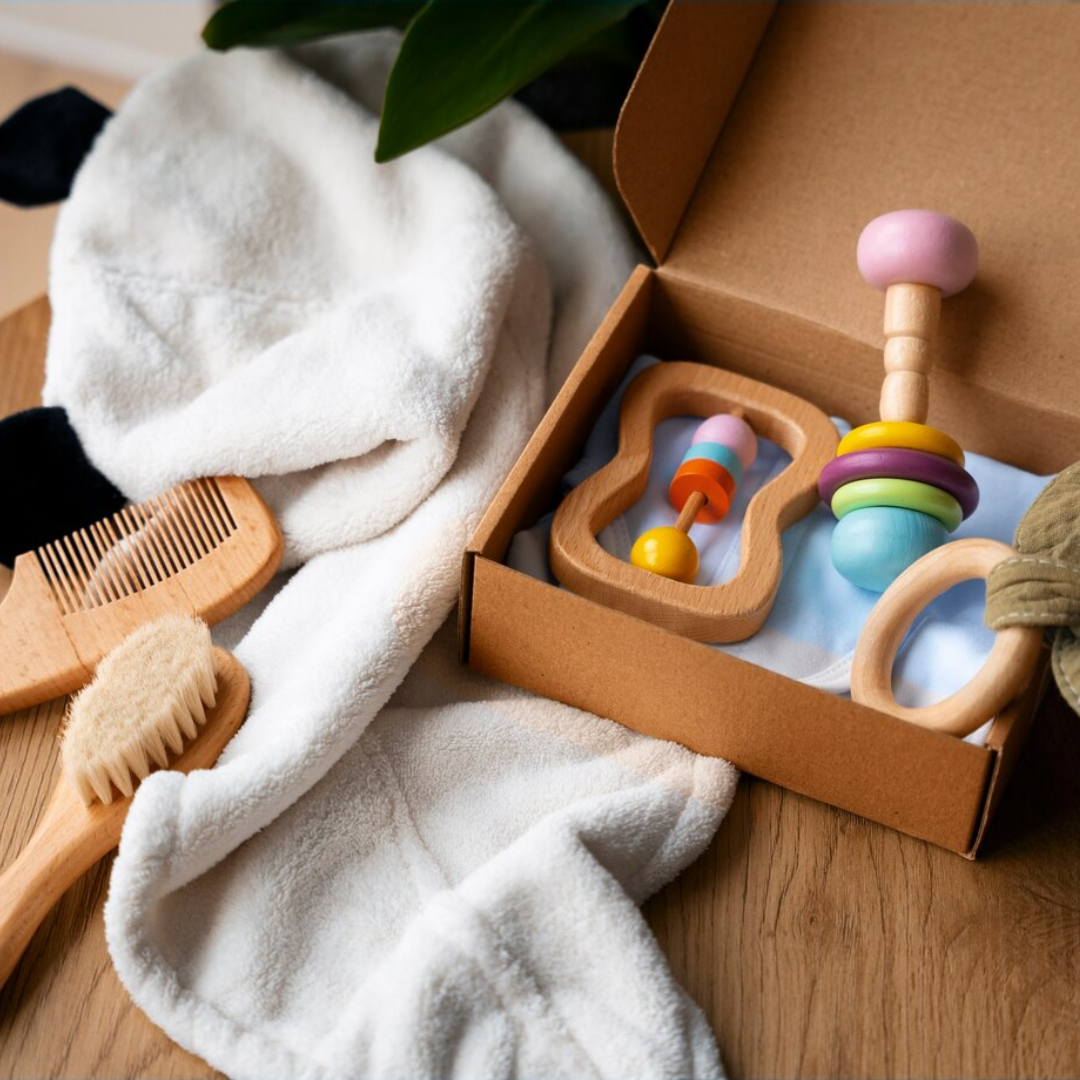Caring for your baby's teeth is an essential part of their overall health and well-being. Establishing good dental hygiene habits from an early age can lead to a lifetime of healthy smiles. While baby teeth are temporary, their health has a significant impact on the development of permanent teeth.
Here's a comprehensive guide to help you understand the importance of baby dental care and how to start your little one on the path to a lifetime of healthy teeth.
The Importance of Baby Dental Care
Baby teeth, also known as primary or deciduous teeth, begin to emerge around 6 months of age. By the time your child is 3 years old, they will typically have a full set of 20 baby teeth.

Although these teeth will eventually fall out and be replaced by permanent ones, they play a critical role in your baby's development. They help with:
- Eating and Nutrition: Baby teeth are essential for chewing food properly, which supports healthy nutrition.
- Speech Development: These teeth help babies learn how to speak and form words.
- Jaw and Facial Development: Baby teeth maintain space in the jaw for permanent teeth, supporting proper alignment.
- Building Healthy Habits: Establishing a dental care routine early on encourages lifelong oral hygiene habits.
When to Start Baby Dental Care

Once your baby's first tooth appears—usually around 6 months—it's time to introduce brushing. Use a soft-bristled toothbrush designed for infants, with a small head and a handle that is easy for parents to hold.
Brushing and Flossing
Brushing: Use a tiny amount of fluoride toothpaste—about the size of a grain of rice. Gently brush your baby's teeth twice a day: once in the morning and once before bedtime. Brush in small circles to cover all tooth surfaces. Make sure to brush the front, back, and chewing surfaces of each tooth. If your baby isn't keen on brushing, try brushing while they're sitting on your lap or make it part of a fun bedtime routine.

Flossing: When two teeth touch each other, usually around age 2 or 3, it's time to start flossing. Use an infant floss pick or a piece of dental floss to gently clean between their teeth. This helps remove food particles and plaque buildup that a toothbrush may miss.
Diet and Its Impact on Baby Teeth

Your baby’s diet plays a significant role in the health of their teeth. A balanced diet that includes fruits, vegetables, whole grains, and lean proteins can help promote healthy teeth and gums. However, it's important to limit sugary snacks and drinks, as sugar can contribute to cavities. Some tips for good dental nutrition include:
- Avoid sugary drinks: Limit sugary drinks like fruit juices, sodas, and sweetened milk. If you do offer juice, ensure it’s diluted and served in a cup rather than a bottle to reduce prolonged exposure to sugar.
- Healthy snacks: Offer age-appropriate snacks like sliced fruits, vegetables, or whole-grain crackers to promote strong teeth.
- Limit sugary snacks: Try to limit sticky and sugary foods like candy, cookies, and gummies that can stick to teeth and encourage plaque buildup.
Regular Dental Checkups
It's important to schedule your baby's first dental visit by their first birthday or within six months of their first tooth appearing. Early visits help ensure any dental issues are caught early and establish a relationship with the dentist. Regular dental checkups will typically continue every six months to monitor the development of your baby’s teeth and gums.
Common Dental Problems in Babies

While baby teeth are temporary, dental issues can still arise. Some common problems include:
- Teething troubles: As mentioned, teething can cause discomfort and irritability. It’s a phase that usually passes with proper care.
- Cavities: Cavities, or tooth decay, can affect baby teeth, often due to frequent exposure to sugary foods or drinks. If left untreated, cavities can cause pain and infection, and may also impact the development of permanent teeth.
- Thumb sucking: While thumb sucking is a common habit for many babies, it can sometimes affect the development of their teeth if the habit persists beyond the age of 4.
Preventing Early Childhood Cavities

Early childhood cavities, also known as early childhood caries (ECC), are a significant concern. They are often caused by prolonged exposure to sugary liquids or milk, especially when babies go to bed with a bottle or sippy cup. To prevent ECC:
- No bedtime bottles: Avoid giving your baby a bottle of milk or juice before bedtime. Instead, offer water if your baby needs a drink before sleeping.
- Clean your baby’s mouth after feedings: Wipe down your baby’s gums, and as soon as their teeth emerge, brush them after every feeding.
- Avoid putting your baby to sleep with a bottle: Allowing your baby to fall asleep with a bottle can cause liquid to pool in their mouth, increasing the risk of cavities.
Baby dental care is an essential part of your child's overall health. By following these simple steps, you can make sure your baby’s teeth and gums stay healthy as they grow and develop.




